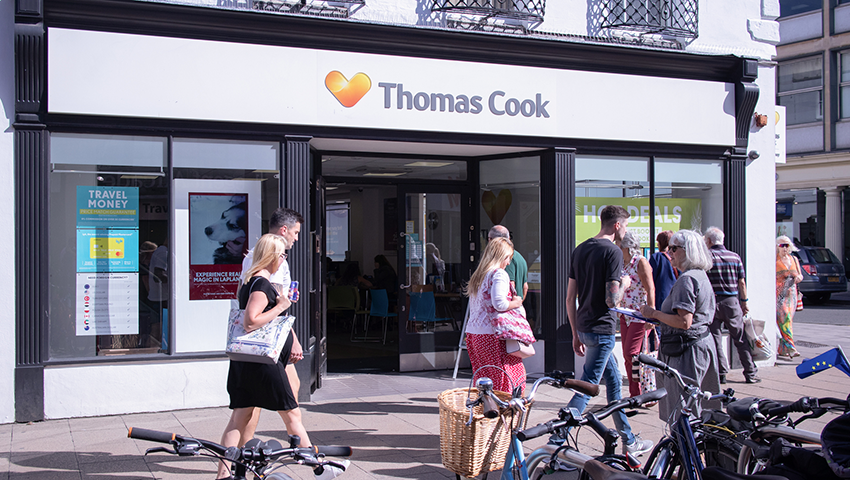On Monday, U.K.-based Thomas Cook travel agency and airline shut its doors. A somber statement on its Twitter account offered a link redirecting its former customers to a site operated by the Civil Aviation Authority (CAA), the British aviation regulator.
The collapse left some 150,000 travelers stranded abroad, but CAA quickly secured planes globally to carry out what is being called the biggest peacetime repatriation in U.K. history. The program will run through Sunday, Oct. 6, after which time customers who are not ATOL protected—a CAA guarantee of financial protection for those who purchased vacation packages and flights from a U.K. member tour operator—will have to buy their own return airfare. The first of such flights left from New York City to return 300 passengers to Manchester on Monday.
The aviation regulator said, “We are doing our best to minimize the impact on passengers, but we do expect there to be significant disruption and delays to travel plans.”
In addition to the significant costs associated with bringing travelers home, 21,000 Cook employees face unemployment. However, conversation around #thomascook on Twitter suggests that many group tour operators are still assisting travelers and carrying out their duties despite not being sure they will be paid, or in some cases, how they’re getting home.
Meantime, employees and customers of the German airline Condor, a profitable Thomas Cook subsidiary based in Frankfurt, got at least a temporary reprieve when the German government agreed to loan the airline $415 million to keep it operating for the time being. Even this welcome development was not without turmoil, however, as social media erupted after a video showed Condor employees clapping and cheering over news of their reprieve even as thousands of Thomas Cook workers were not so lucky.
“Enjoy your celebration while I struggle to feed my family,” one of them wrote on Twitter.
A Cook History of Tourism
The collapse of the company is lamented for its place in history as well as its sheer stamina; the 178-year-old package tour division was the extension of its namesake, Thomas Cook, who in 1841 organized his first group journey for 570 temperance supporters to attend a meeting in Loughborough.
By 1873 Cook had made his own around-the-world tour and began offering global package travel arrangements for 200 guineas. In 1924 his business became a private limited liability company, and in 1948 the shares were acquired by the British Transport Commission.
Competition in an Uncertain Industry
In July, the company announced that its largest shareholder, Shanghai-based Fosun Tourism Group, would make a substantial new capital investment to carry languishing financing through the historically quiet winter season.
The company called the operating environment in the EU “progressively more challenging,” and the Fosun deal was not enough to save the company. A request for a bailout from the British government was denied.
Industry observers say the company was unable to keep up with today’s tech-forward environment, with travelers preferring affordable, a-la-carte booking options over travel agencies and package deals.




